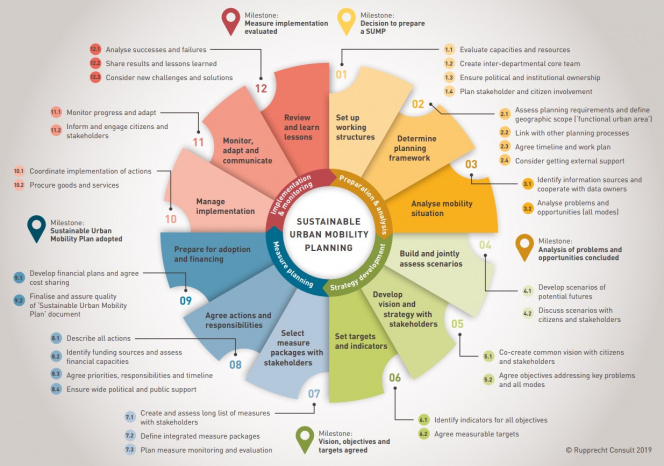INTRODUCTION
This database in designed to host teaching materials relevant to mobility manager skills and knowledge and the Sustainable Urban Mobility Plan (SUMP) delivery process.
It provides carefully selected state of-art resources supporting successful finalisation of thesis or project work related to mobility and transport management.
All materials are open-access and free to use without registration.
ABOUT MOBILITY MANAGER
The Mobility Manager definition adopted in the S@mpler project includes three interwoven areas of knowledge and competence, characterised by a scope and complexity of tasks:
- Advanced level, where Mobility Manager is involved in comprehensive transport and mobility planning at the city or regional level by strategic planning documents.
- Intermediate level, which focuses on particular problem areas (urban planning, city logistics, transport modeling), but requires the Mobility Manager to understand his place in a broader context of sustainable urban mobility planning.
- Basic level, where Mobility Manager is responsible for personal mobility planning at the company level.
List of Mobility Manager knowledge is available here
SUSTAINABLE URBAN MOBILITY PLAN
The concept and general guidelines for development of the Sustainable Urban Mobility Plan adopted by European Union are available here.
HOW TO USE THE DATABASE?

SUSTAINABLE URBAN MOBILITY PLAN

- evaluate capacities and resources
- create inter-departmental core team
- ensure politician and institutional ownership
- plan stakeholder and citizen involvement
- assess planning requirements and define geographic scope
- link with other planning processes
- agree timeline and work plan
- consider getting external support
- identify information sources and cooperate eith data owners
- analyse problems and opportunities (all modes)
- co-create common visions for citizens and stakeholders
- agree objectivies addressing key problems and all modes
- create and assess long list of measures with stakeholders
- define integrated measure packages
- plan measure monitoring and evaluation
- describe all actions
- identify funding sources and assess financial capacities
- agree priorites, responsibilities and timeline
- ensure wide political and public support



